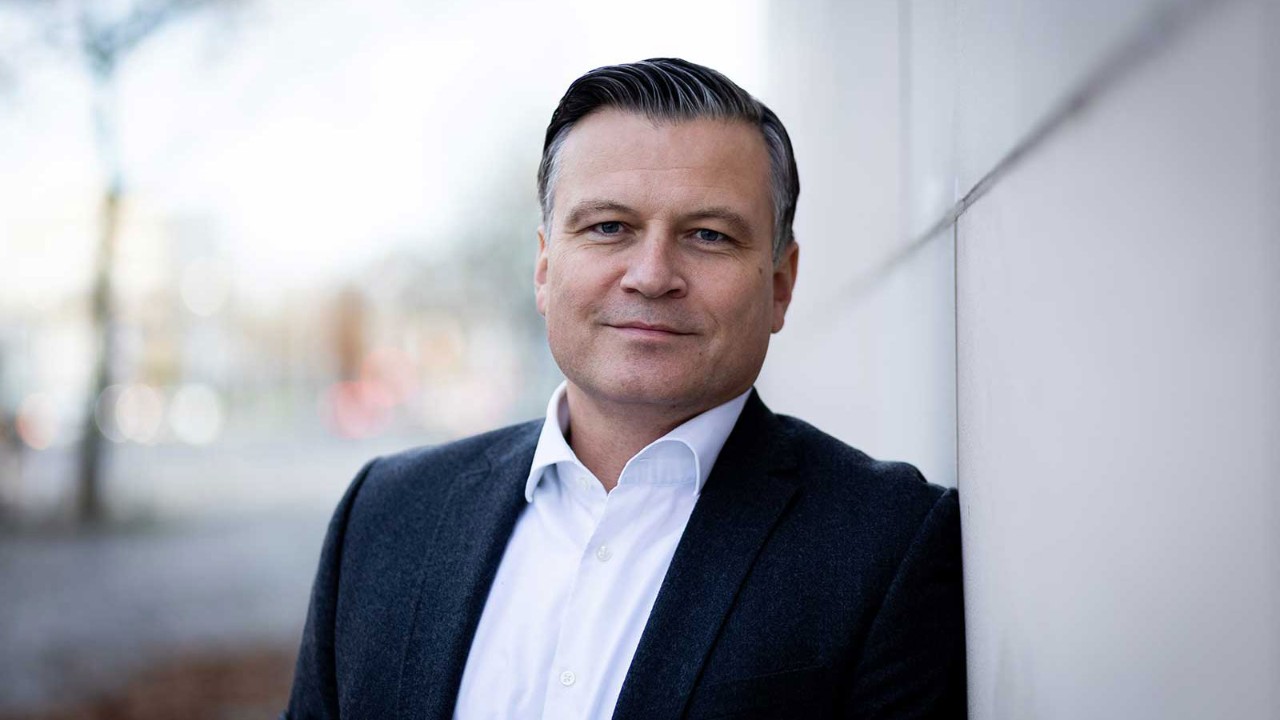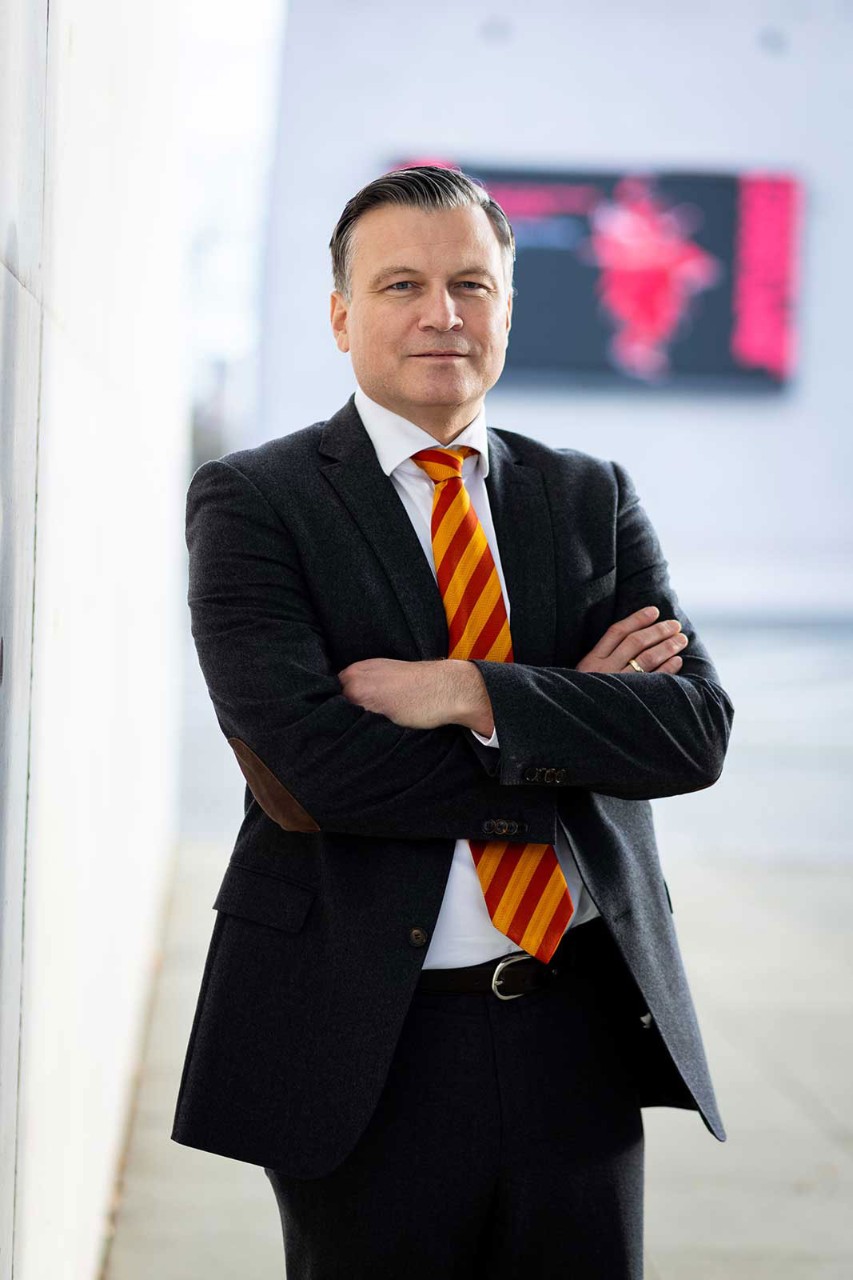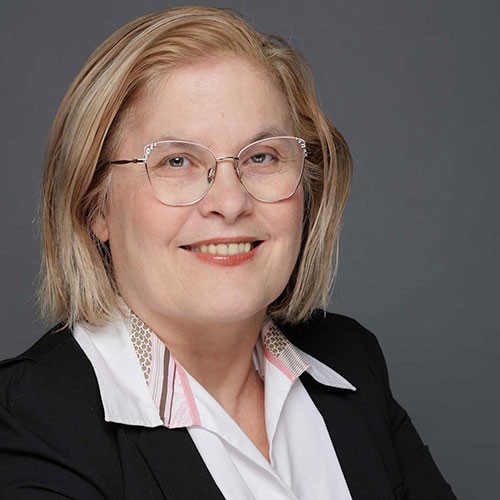
When the 12-year-old son of Michael Schlombs inquired about his father’s work, he wryly observed: ‘You’re just playing with money and numbers, aren’t you?’ Schlombs, 49, laughs off his son’s observation, remarking that it’s ‘sort of’ of what he does. As he speaks, though, it becomes clear that managing the money comes in many forms. It’s more complex than just managing the accounts.
Schlombs is head of finance for the delivery and solution unit inside Deutsche Telekom’s business-to-business (B2B) segment. It’s a segment that generated €9.3bn of the €114bn of annual revenue that the company with the magenta trademark made in its 2022 financial year.
‘My work is driving the business, being a co-pilot’
Priority-packed
‘My work, the majority of the time, is driving the business, being a co-pilot, understanding the risks, understanding the opportunities and pushing optimisation, increasing output and defining the right KPIs to manage service, operations and delivery,’ Schlombs says. ‘My month-end closing and my month-end routine is, let’s say, about 15% of my actual work. But it is absolutely important as well… I manage a good function that enables me to spend time with the business and steer the numbers, transactions and content.’
It’s a breathless list of priorities. But no surprise given the sheer scale of delivering telecom services to large companies. To illustrate the point, Schlombs offers the example of services to a major airline: telecoms in hubs around the world, an in-flight entertainment system, satellite connections, fibre connections and mobile back-up.
Providing the average individual with their mobile phone is relatively simple by comparison. ‘In B2B, the solutions are complex,’ Schlombs notes dryly.
Good thing then that he has a background in dealing with complex organisations. Before Deutsch Telekom, he spent a decade with KPMG travelling the world – including the Czech Republic, Denmark, Spain, the UK and Australia – working in audit but also dealing with big M&A transactions. It was while at KPMG that he acquired his ACCA qualification.
He joined the T-Systems arm of Deutsche Telekom in 2010 when it was looking for people with experience of large customers. Schlombs fitted right in. Various roles followed before he found his current job at Deutsche Telekom’s headquarters in Bonn.
‘We are continuously working on being smart’
Telco transformed
Deutsche Telekom has defied soothsayers since current chief executive Tim Höttges took the reins in 2014. Höttges has transformed the German telco market and built the vast T-Mobile business in the US until it became ‘the world’s most valuable telecoms company’, ahead of Verizon and AT&T. It also recently overtook Mercedes-Benz to become Europe’s most valuable corporate brand, according to consultancy Brand Finance.
The B2B business now owns more than 50% of the German market, competing against household names such as Telefonica, Orange and Vodafone.
For Schlombs, his current role begins when salespeople open talks with a new client and there is discussion about the cost of service and delivery ‘to make the best offer for the customers and the best quality’.
The Deutsche Telekom philosophy is to make ‘fans’ of their clients. ‘It’s very focused on keeping them happy but also providing the right service at the right time and price,’ Schlombs says. ‘We are continuously working on being smart, being more efficient in the delivery and in the service arena, and being more agile. Automation and digitisation is really a game changer. KPIs are important, but it is not only monitoring, it is steering, it is managing, it is driving performance, it is in the end about getting better!’
‘You need to be fresh every morning’

Getting stuck in
The complexity of service provision is less daunting than it is exciting for Schlombs. But he is serious about the qualities it demands in staff. ‘You need to be a character who doesn’t put their head in the sand if something doesn’t run as expected,’ he says. ‘It’s always about pulling up your sleeves, being proactive, trying to manage the risks, trying to manage the opportunities. You need to be fresh every morning.’
An ACCA background helps. ‘The ACCA qualification gives you such a base it makes it easy to operate because you understand the dynamics of financial transactions, which is absolutely critical.’
It is not the only skillset he brings to the job. He is a major in the Landeskommando Niedersachse, a branch of the German armed forces that liaises with civilian authorities during times of crisis. He served in uniform during the Covid-19 pandemic in a Hanover-based unit.
To the army he takes his experience of telecoms and organisation – knowledge, after all, is critical in a crisis. But he also brings something back.
‘In particular, dealing with people, the interaction you have in a crisis,’ he explains. ‘You really learn how they react, what the body language is and how you can survive in a moment of uncertainty.’ He is, thanks to the experience, ‘no headless chicken’.
‘The future is ESG-driven and it is a chance to drive our transformation’
Climate leadership
That’s fortunate because Deutsche Telekom is even more multilayered than its highly complex services. The company this year came third in a Financial Times list of European climate leaders, and Schlombs’ own personal performance measures include an ESG (environmental, social, governance) element. Much of that involves recycling equipment.
Schlombs says the company has an emphatic goal to become carbon-neutral. ‘It is sometimes difficult to change patterns, sourcing and commercial models, without doubt,’ he admits. ‘But the future is ESG-driven and we see this as a chance to drive our transformation with a clear path. In my team I put a lot of effort into developing new ways of increasing re-usability of equipment; it becomes part of our DNA to think about these things.’
Culture
Deutsche Telekom’s culture likely helps with the commitment. He describes the company as ‘very open’, with a code of conduct based on respect and fairness when dealing with colleagues.
Then there’s the company’s approach to ‘failure’. Employees are empowered to act if something is going wrong – to ‘make a correction and try again’, Schlombs says. ‘If you do something wrong nobody will kill you. It’s: OK, you’ve done something wrong, don’t do it twice – learn from this and make the best of it.’
That kind of forgiving environment may well underpin the commitment and loyalty Schlombs has for Deutsche Telekom and its magenta trademark. ‘It’s like blood flowing through your veins,’ he says. ‘People are proud of being part of the magenta family.’



